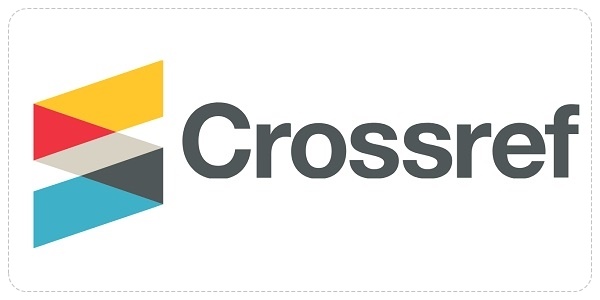Enhancing English Communication Teaching Skill In Iraqi Schools
Abstract
This study investigates English language teaching (ELT) methodologies and their impact on developing communication skills among students in Iraqi schools. While English is increasingly vital for academic, professional, and social success globally, traditional teaching methods in Iraqi schools focus on rote memorization and grammar instruction, neglecting practical language use. As a result, students are often unprepared for real-world communication. This research explores alternative methodologies, particularly Communicative Language Teaching (CLT), which emphasizes meaningful interaction and real-life language application. Using a qualitative research design, the study collected data through semi-structured interviews with English teachers and classroom observations. The findings reveal that traditional methods provide a grammatical foundation but fail to improve students’ speaking and listening skills. Barriers such as resource limitations, large class sizes, and resistance to change prevent the adoption of communicative approaches. Classroom observations confirmed that instruction remains predominantly teacher-centered, with limited student engagement. Despite these challenges, CLT strategies showed potential in fostering fluency, confidence, and active participation. To enhance communication skills, Iraqi schools must transition to interactive, student-centered teaching methodologies. Complementing traditional methods with real-life language applications and addressing systemic challenges, such as inadequate resources and teacher training, will better prepare students for success in an interconnected global society.
Keywords
Full Text:
PDFReferences
Abdulhameed, D., & Louber, I. (2024). A qualitative action research study on learner centered teaching in EFL classes within three public schools in the Kurdistan Region of Iraq. Kurdish Academic Journals , 61, 65-92. https://doi.org/10.56422/ka.3.61.467
Alali, A. (2017). Using technology to support the professional development of Iraqi ESL teachers in the post-invasion context (Doctoral dissertation, University of Leeds).
Al-Obaydi, L. H. (2019). Cultural diversity, awareness and teaching: A study in an EFL context. Journal of Asia, 16(3), 987-995. http://dx.doi.org/10.18823/asiatefl.2019.16.3.15.987
Altufaili, I. R. (2016). Education policy and practices of English as a foreign language (EFL) in Iraq (Master’s thesis, Missouri State University). MSU Graduate Theses, 2363. https://bearworks.missouristate.edu/theses/2363
Audil, A. F., & Mustafa, H. R. (2024). From theory to classroom: Examining communicative language teaching practices in Iraq, International Journal of Academic Research in Progressive Education And Development, 13(4), 2146-2159. http://dx.doi.org/10.6007/IJARPED/v13-i4/23809
Barzinji, P. A. (2024). Implications and Insights: A Comprehensive Review of English Language Teaching Research in Iraqi Kurdistan. Studies in Literature and Language, 28(1), 22-30. http://dx.doi.org/10.3968/13321
Burhan, N. (2024). Overcoming shyness and bullying in EFL Classrooms: Strategies for promoting communicative competence among Iraqi learners. Journal of Misan Researches, 20(39), 382-397. https://doi.org/10.52834/jmr.v20i39.237
Chen, X., Zou, D., Xie, H., & Cheng, G. (2021). Twenty years of personalized language learning. Educational Technology & Society, 24(1), 205-222.
Dakhil, T. A., & Yahya, A. A. (2022). Iraqi EFL teachers, supervisors and students' perception of CLT principles and practices at Iraqi Schools: A study of its benefits, snags, and future directions. International Journal of Health Sciences, (V), 767-790. https://doi.org/10.53730/ijhs.v6nS5.8893
Fahad, A. (2015). Sociolinguistic challenges faced by Iraqi graduate students at US Universities: A case study for Iraqi graduate students at University of Cincinnati. Arab World English Journal (AWEJ), 6(1), 366-377. https://dx.doi.org/10.2139/ssrn.2834458
Ghafar, Z. N., Sawalmeh, M. H., & Mohamedamin, A. A. (2023). Impact of communicative language teaching method on students' speaking and listening skills: A review article. International Journal of Linguistics, Literature and Translation, 6(1), 54-60. https://doi.org/10.32996/ijllt
Hashim, M. R. (2022). Teaching grammar in Iraqi secondary schools by using the communicative approach. Buletinul Stiintific al Universitatii Politehnica din Timisoara, Seria Limbi Moderne, (21), 124-137.
Hossain, M. I. (2024). Global citizens, civic responsibility, and intercultural communication in a rapidly globalising multicultural world: Community revitalisation and reflective practise. Ethnopolitics, 23(5), 487-514. https://doi.org/10.1080/17449057.2023.2216982
Hubbard, P. (2016). Computer assisted language learning: Critical concepts in linguistics. Routledge.
Hunduma, C. M., & Mekuria, Y. S. (2024). Multicultural education and global citizenship: Literature review. Multidisciplinary Reviews, 7(10), 2024223-2024223. https://doi.org/10.31893/multirev.2024223
Hussein, L. D. N. O. (2024). The effect of using Communicative Language Teaching (CLT) on developing EFL Iraqi learners' english communication skills: An Experimental Study. Wasit Journal for Human Sciences, 20(4), 529-517. https://doi.org/10.31185/wjfh.Vol20.Iss4.610
Jassem, A. A., & Sarkhosh, M. (2024). The effect of task-based language teaching on speaking abilities of Iraqi intermediate EFL Learners and Their Attitudes Towards English. International Journal, 5(11), 9354-9367. https://doi.org/10.61707/yjb5fh90
Lafta, N. H. (2021). The difficulties that teachers face when implementing Communicative Language Teaching (CLT) in Secondary Schools in Iraq. Journal of College of Education/Wasit, 43(1), 577. https://doi.org/10.31185/eduj.Vol1.Iss43.2158
Milon, M. R. K., Ishtiaq, M., Ali, T. M., & Imam, M. S. (2023). Unlocking fluency: Task-Based Language Teaching (TBLT) in tertiary speaking classes-insights from Bangladeshi teachers and students. International Center for Research and Resource Development, 4(4), 218-230. https://doi.org/10.53272/icrrd
Mok, K. H., Wen, Z., & Dale, R. (2016). Employability and mobility in the valorisation of higher education qualifications: The experiences and reflections of Chinese students and graduates. Journal of Higher Education Policy and Management, 38(3), 264-281. https://doi.org/10.1080/1360080X.2016.1174397
Namaziandost, E., Behbahani, H. K., & Naserpour, A. (2024). Peer support in language learning: Mitigating anxiety, enhancing achievement, cultivating growth mindsets, and increasing enjoyment. Journal of Applied Learning and Teaching, 7(2), 296-313. https://doi.org/10.37074/jalt.2024.7.2.40
Nosirova, D. (2023). Harnessing digital tools for english language learning. Modern Science and Research, 2(10), 39-44.
Qasserras, L. (2023). Systematic review of communicative language teaching (CLT) in language education: A balanced perspective. European Journal of Education and Pedagogy, 4(6), 17-23. https://doi.org/10.24018/ejedu.2023.4.6.763
Richards, J. C., & Rodgers, T. S. (2014). Approaches and methods in language teaching. Cambridge: Cambridge University Press.
Saeed, M. Q. (2021). An economic perspective on language management in Iraqi Kurdistan. Journal of University of Raparin, 8(2), 103-127. https://doi.org/10.26750
Saeed, N. R., & Jafar, F. A. (2015). Problems of teaching English in Iraqi public schools in Mosul for the intermediate stage from the teachers’ point of view (Doctoral dissertation, Middle East University).
Samier, E. A. (2018). The politics of educational change in the Middle East and North Africa: Nation‐building, postcolonial reconstruction, destabilized states, societal disintegration, and the dispossessed. The Wiley Handbook of Global Educational Reform, 173-197. https://doi.org/10.1002/9781119082316.ch9
Shliakhovchuk, E. (2021). After cultural literacy: New models of intercultural competency for life and work in a VUCA world. Educational Review, 73(2), 229-250. https://doi.org/10.1080/00131911.2019.1566211
Sourani, M. R., AbdulFattah, F., & Sayer, I. (2023). Exploring the challenges of the communicative language teaching approach in the EFL context of Arab learners. Teaching English Language, 17(2), 361-389. https://doi.org/10.22132/tel.2024.427424.1535
Taha, E. F. (2022). Difficulties of teaching new english communicative syllabuses by Iraqi Teachers. Journal of Tikrit University for Humanities, 29(7, 1), 91-107. https://doi.org/10.25130/jtuh.29.7.1.2022.25
Thamarana, S. (2015). A critical overview of communicative language teaching. International Journal of English Language, Literature and Humanities, 3(5), 90-100. https://doi.org/10.22132/tel.2024.427424.1535
Waham, J. J. (2023). The significance of teaching english literature in schools in Iraq. Pedagogia, 13(1), 56-60. https://doi.org/10.21070/pedagogia.v13i1.1583
Zainuddin, S. Z. B., Pillai, S., Dumanig, F. P., & Phillip, A. (2019). English language and graduate employability. Education+ Training, 61(1), 79-93. https://doi.org/10.1108/ET-06-2017-0089
DOI: https://doi.org/10.17509/pdgia.v22i3.67400
Refbacks
- There are currently no refbacks.
INDEXED BY

This work is licensed under a Creative Commons Attribution-ShareAlike 4.0 International License
















